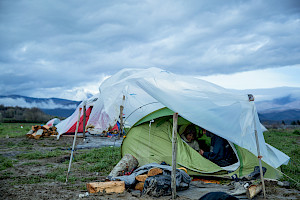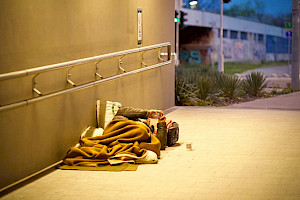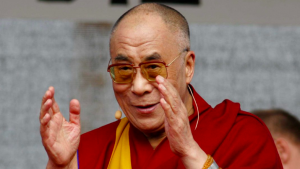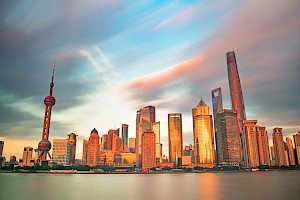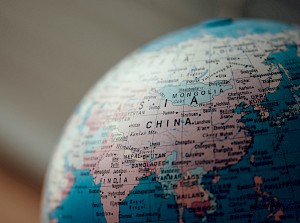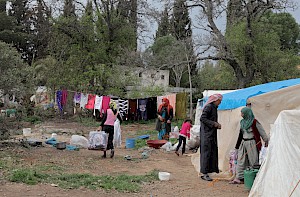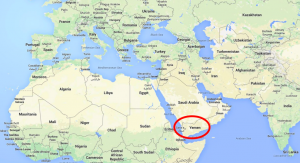My Christmas wish list for the world … maybe Santa can save us
January 17, 2024Originally published in The Toronto Star on December 19, 2023 as contributing columnist
“Every gun that is made, every warship launched, every rocket fired signifies, in the final sense, a theft from those who hunger and are not fed, those who are cold and are not clothed.”
— President Dwight D. Eisenhower, April 16, 1953, “Chance for Peace”
Never in my lifetime have I seen the world in such a sorry state; fragile, dysfunctional, and downright scary.
I often write about how to address the various issues that plague us , but as with similar pleas from others, it seems my arguments fall on deaf ears.
Nothing changes and the situation only worsens. At this point there is no one else to appeal to. Out of desperation, I decided to write a wish list to Santa Claus. The list is not exhaustive, but it addresses the main underlying fixes needed to solve most of what’s wrong with our world. So, here goes.
Dear Santa:
In reflecting on the state of the world, it’s clear we need you and your elves now more than ever. I’m hopeful you might oblige with a few small "stocking stuffers" for the coming year.
1. The world needs to advocate for a two-state solution for Israel and Palestine. The recent attack by Hamas on Israel that left 1,200 dead and the subsequent Israeli response that has left more than 15,000 Palestinians dead, is the most horrific of the many clashes between Israel and Palestine over the past 70 years.
As I wrote a few years ago, this conflict will never end until a peaceful solution is found that benefits both Israeli and Palestinian people. Even if Israel “eliminates” Hamas (doubtful), there will be a new generation of Palestinians that will be even more militant than Hamas. A two-state solution will only be remotely possible with new leadership on both sides of the conflict.
2. Reinstate the Iran Nuclear deal (JCPOA). As imperfect as it was, the original Joint Comprehensive Plan of Action agreed to in 2013, did prevent Iran from developing nuclear weapons. The Trump administration, persuaded by the pro-Israel and anti-Iran hawks in Washington, killed that deal and Iran has continued its enrichment program and is very close to having weapons-grade uranium. (For a recent update, listen to the podcast from Crisis Group, which I co-chair).
Israel has vowed to never allow that to happen which leaves them only one option — to bomb Iran. Hawks in the U.S. aren’t helping, but no one seems to consider what an Israeli attack, which might draw the U.S. into direct conflict, would mean for the region. Iran is very capable of igniting a regional war that would not only be devastating to the population but would send oil prices through the roof. The West would suffer with uncontrollable inflation.
3. The BRICS+ nations (Brazil, Russia, India, China, South Africa, Argentina, Egypt, Ethiopia, Iran, Saudi Arabia, and the UAE along with 20 more applicants) must be allowed to succeed as a balance to G7 hegemony. The Global South, including low-income countries, would benefit from a strong BRICS+ and the alternative financial and monetary systems being proposed. They should be seen as alternatives, not replacements for the current western-based system.
The U.S. dollar’s supreme reserve status has not benefited low-income countries as they struggle with “imported” inflation and the servicing of U.S.-dollar denominated debt payments. Also, there is nothing wrong with the BRICS New Development Bank competing with the World Bank in helping to finance infrastructure projects around the world.
It may represent a loss of power for the West, but low-income countries would be grateful beneficiaries.
4. The West needs to rethink how and when to apply sanctions against states they deem to be bad actors. Broad sanctions with an endless life have proven not only ineffective, but only serve to hurt the citizens of the sanctioned country. Those in power seem to do just fine and in fact, use the sanctions as a means of solidifying their hold on power by rallying the population against the “evil western hegemons.”
What have 60 years of sanctions based on ideology against Cuba produced? Have sanctions on North Korea prevented the country from achieving unstoppable nuclear capability? And Venezuela? Sanctions helped create unimaginable suffering for its population and almost eight million refugees escaping to other countries.
In the meantime, President Maduro and his government are doing just fine and still hold power. The sanctions the West imposed on Russia following its invasion of Ukraine, (which many have argued have been poorly enforced), haven’t severely damaged the Russian economy. In fact, since the sanctions have been in place Russia has upped its exports to China, India, and 100 other countries.
5. We need to seriously curtail the immense power of the U.S. Military Industrial Complex. The Quincy Institute for Responsible Statecraft (which I support) states that “America’s massive military budget fails to keep America safe while enabling Washington’s continued pursuit of global U.S. military primacy, a strategy which has yielded massive, costly failures.”
As I wrote awhile back, “the United States finds itself today, mired in senseless "forever wars," maintaining over 800 foreign bases … expending roughly a trillion dollars a year for what is loosely termed national security. As the saying goes, if all you have is a hammer, everything looks like a nail. The problem is that war is very profitable for the elites, but not so much for the working class.
6. And speaking of conflict, China and the U.S. need to realize that, as the world's two military and economic superpowers, they have a responsibility for keeping the world away from the brink of a Third World War. The recent meeting with President Xi and President Biden was a good first step, but it only served to prevent an accidental mishap that would risk a full-scale confrontation between the two great powers.
In my 2015 piece, I wrote that my biggest concern for global security in the 21st century was U.S./China relations. The U.S. must accept that China has a right to succeed economically and have its own version of a political system. Preaching democracy and demagoguing the Chinese is a pointless exercise. China is rising and the US needs to get its own economic and financial house in order so that it can compete. For its part, China needs to stop intimidating its neighbours with its South China Sea territorial claims. Lastly, both sides need to return to the strategic ambiguity over the future of Taiwan.
7. Of course, these challenges would be considerably less daunting if we were equipped with a fully operational UN Security Council. The imperative for reform within the Council is paramount, primarily due to its susceptibility to the dominance of large-state interests, exemplified by the five permanent members wielding veto powers.
This dynamic frequently results in conflicts among these influential nations, effectively rendering the Council — the pinnacle of the United Nations — ineffective in addressing critical issues where lives are at stake. As such, we are left with an impotent institution, relegated to no more than issuing stern finger-wagging, not only to the five permanent members but also to countries aligning with their vested interests.
Santa, I could go on and on with requests for addressing climate change, reforming central banks, and taking religion out of global conflicts, but I fear that I am beginning to sound greedy. I have been a very good boy this year and anxiously await your reply.
Kind regards, Frank
There you have it, my Christmas wish list.
I recognize it’s a tall order and perhaps even an impossible one. But I implore you, reignite my belief in Santa once more.


